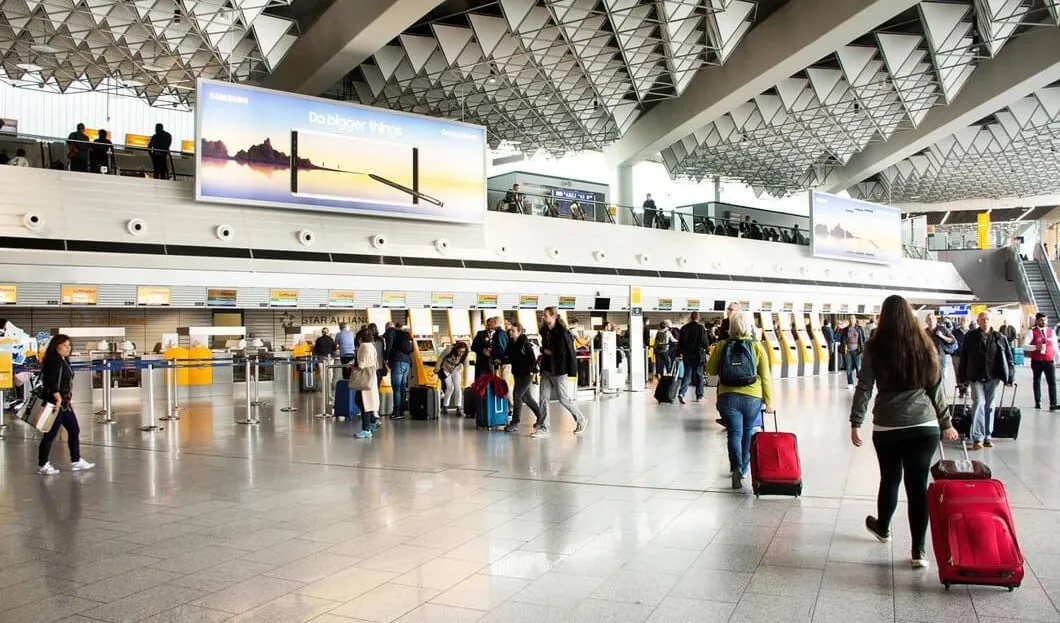
The international travel industry confirms a significant recovery of German inbound tourism for 2022. This is the key finding of the latest Travel Industry Expert Panel of the German National Tourist Board (GNTB).
The Travel Industry Expert Panel shows that from Q1 to Q4, assessments of the current business situation rose from minus 40 to plus 25 (on a scale of minus 100 to plus 100). Business expectations for the coming six months, which had fallen from plus 74 to plus 55 during the first half of the year following the start of the Ukraine war, have stabilized, but remain below the assessment at the beginning of the year due to the crisis.
Europeans Plan to Travel
German inbound tourism recovered significantly during the 2022 summer season. The volume of overnight stays by foreign guests in the third quarter reached around 85 percent of the pre-crisis level. At the same time, the industry must prepare for continued difficult economic conditions. In the GNTB's view, attractive sustainable offerings and further progress in digital transformation are essential to consolidate Germany's position as a destination in an increasingly competitive market.
Travel intentions in Germany remain high. This is confirmed by the latest 'Monitoring Sentiment in Intra European Travel' study conducted by the European Travel Commission (ETC) in October 2022. According to the study, 70 percent of travelers from Europe, the most important source market for incoming Germany with a market share of more than 80 percent, would plan to travel in the coming six months - an increase of four percent year-on-year. Foreign destinations within Europe would be preferred by 62 percent of Europeans - an increase of seven percent compared to 2021. At the same time, the proportion of those who want to vacation in their own country or take a long-haul trip would fall by three percent in each case.
Analysts at Tourism Economics also confirm a high predisposition to travel and forecast a further increase in German inbound tourism from 60 to 67 million international overnight stays in Germany in 2023. However, on the travel industry side, 90 percent of respondents to the GNTB Industry Expert Panel expect prices for travel in Germany to rise in 2023 due to inflation and higher energy costs. Despite this, more than one-third of top managers state that moderate price increases would not affect customer demand for travel offers in Germany, while 57 percent expect a slight decline in demand due to price increases.
Positive Development of Tourist Arrivals in the Summer of 2022
According to the German Federal Statistical Office, overnight stays by international visitors rose to 50.6 million from January to September 2022. That's 72 percent of the same period in 2019, with incoming numbers reaching 84 percent of pre-crisis levels in July, 83 percent in August and 87 percent in September.
The top source markets for Germany were the Netherlands, followed by Switzerland, the USA, Austria, and Poland. The recovery developed positively, although the major source market China continues to be regulated due to the strict zero covid policy; due to the war, this also applies to the Russian source market.
However, key figures from MKG Consulting for the hotel industry show that Germany is performing slightly weaker than its competitors, with a drop of 5.9 points. In all markets surveyed - Germany, France, Italy, Spain, Switzerland, and Austria - the hotel occupancy rate in October 2022 is below that of the same month in 2019.
At the same time, the non-inflation-adjusted average prices for overnight hotel stays in these destinations in Europe have risen. In terms of current room rates, Germany is also becoming more expensive, but remains in the bottom third.
Based on current data, the market research institute Tourism Economics forecasts a volume of around 60 million overnight stays by foreigners for Germany in 2022 - around two-thirds of the previous record year of 2019.
More Sustainable Travel Is the Trend
The GNTB's extensive marketing activities for more sustainable inbound tourism are having an impact: For example, according to analyses of mobile data by Teralytics on behalf of the GNTB, the share of arrivals to Germany by rail rose from 10.6 percent to 14.4 percent between January and October 2022 compared to the same period last year. Length of stay in the air segment increased from an average of 8.3 to 9.9 days in the first 10 months of 2022 compared to the same period in 2019, according to Forward Keys analyses. The CO2 footprint per travel day is therefore decreasing.
According to analyses by IPK International, sustainability, climate protection and environmental protection will be important or very important to 80 percent of international travelers in the future. In order to book more sustainable travel, around 40 percent of respondents expect a broader, more cost-effective range of offers and more concrete information.
According to the IPK, more than half of those surveyed would also travel outside the high season in order to reduce the flow of travel. 43 percent can imagine sacrificing comfort, for example in terms of travel, in the interests of greater sustainability. The interest in combining a city trip with a stay in rural regions is strong among international travelers worldwide, at more than 90 percent.









